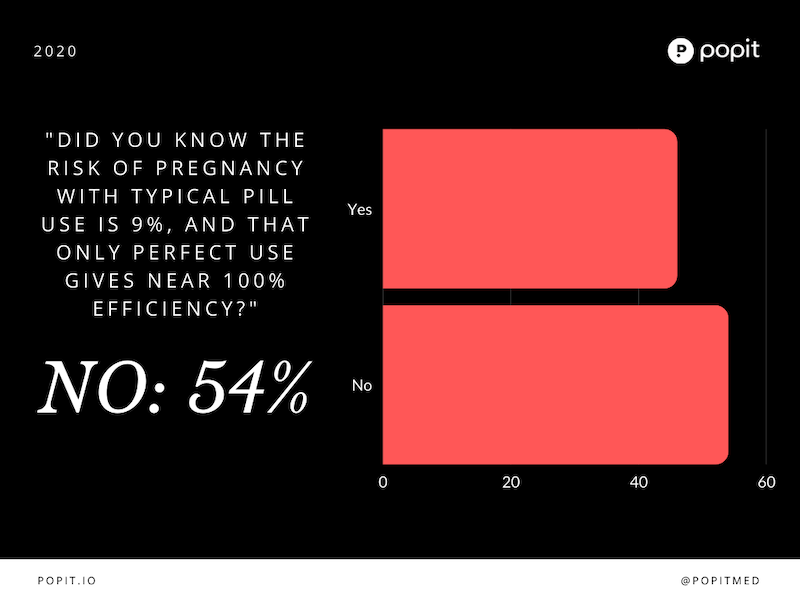First Time Starting The Birth Control Pill? Here’s What To Expect
If you wish to enjoy your sex life without having the trouble to worry about getting pregnant, then opting for birth control pills is the most common solution undertaken by most women. There are some things to expect if you are just starting birth control pills.
These pills are known to increase the amount of estrogen and progesterone so the process of ovulation doesn’t take place. The quantity of these two hormones is heightened so much by these contraceptives that they do not allow the production of other hormones that are required to ripen the egg. Hence, during the time that you take these pills, the menstruation cycle doesn’t occur at all.
It is true that none provide immediate protection against pregnancy from day one.
All modern pills have the same very good safety profile, but it is true that none provide immediate protection against pregnancy from day one. It is ideal to use additional protection for the first 14 days and then you will be safe after this.
Pregnancy risk is 9% if pills are forgotten every now and then.
It is, however, essential to bear in mind that occasional forgetfulness will cause the pill’s contraceptive efficiency to be much lower. Research highlights a pregnancy risk of 9% if pills are forgotten every now and then (vs. a perfect use risk of 0.3%). That is a 30x increase! The fact is that 1 in 10 gets pregnant while on the pill (read more about how to make sure pills work as intended). If you are on the so-called mini-pill (progesterone-only pill, POP), it is even more important to be on time.
We recently did a study where we asked 1694 women of all ages if they knew about the heightened risk related to occasional forgetfulness. The results were quite surprising: 54% heard about it for the first time.

Download Our Pill Reminder App and Stay on Top of Your Birth Control!
Stay on schedule, never miss a dose, and avoid common mistakes that could lead to unplanned pregnancies.
The first three months of using birth control pills can be difficult. It often takes time for your body to adjust, and most women experience at least a few negative (minor) symptoms. Mostly during the first month of adjustment, bleeding is common. With change bleeding, it is common to see some unexpected spotting even if you aren’t technically on your period. Alternatively, the opposite can occur – some women will stop menstruating altogether. Finally, many may also experience nausea, breast tenderness, weight gain or loss, mild headaches, dizziness, or breakthrough bleeding (spotting), and turbulent emotions during their first few days on the pills.
It often takes time for your body to adjust, and most women experience at least a few negative (minor) symptoms.
Those symptoms normally stop within the first 3 months of taking pills. If these signs continue after three months, return to your clinic or doctor for a follow-up. You may be given instructions to switch to a different type of pill.
You may also need to stick it out for a few months to understand how your body will react to the pill. Of course, if you are experiencing symptoms like extreme and overwhelming nausea or severe weight gain within a few days of taking the first pills, contact your doctor.
In general, however, by the third month, emotional fluctuations should be relatively unsubstantial and nausea should no longer be a part of daily living.
Breast tenderness should also disappear although you may experience increased breast fullness.
Another thing to take into consideration is that certain medications and supplements can make the pill less effective (read more about what can make birth control pills fail).
Whether you’re just getting started on the pill, or you’ve been taking them for a while, it’s a good idea to fill your doctor in whenever you add something new to your routine. When in doubt, use a backup method of birth control (and even when not in doubt, the pill doesn’t protect you against STDs). And there’s no way to be delicate about this fact: vomiting and diarrhea can also keep the pill from working. So, you know, use a condom.
If you’ve already started taking pills and have been mysteriously symptomless? That’s perfectly okay too! You’re simply one of the lucky ones out there. No need to worry but keep in touch with your doctor.
(In a clinical pilot – DOI: 10.15761/COGRM.1000217, conducted by a team of doctors including Henna Kärkkäinen, MD, Ph.D., Department of Gynecology and Obstetrics, Heikki Matero Ph.M, Janne Sahlman MD, Ph.D. at the Kuopio University Hospital, it was concluded that an on-demand reminder system increases adherence of birth control pill users. More details regarding this study can be found here. )

Mikko Veräjänkorva is a pharmacist and holds a BScBa in International Business. He has over 15 years experience in pharmaceutical field from pharmacy, medical and pharmaceutical industry. He is one of the founders and board members of Farenta since 2003.
My aim is to write informative high quality articles based on science in way that all of us can easily understand the point. Science and evidence based research is at the core of my writing. The main purpose of my articles are to provide practical information on healthy lifestyle and to provide reliable and practical information about different medical conditions.
Bringing medical jargon to the masses is my mission.
Related articles




I just started birth control and my period started half way through pack and has lasted for 9 days. Should I be concerned?
I think that’s normal. I just got birth control today and did a lot of research on it before I start it. What you described is known as breakthrough bleeding. This is normal and you should NOT stop taking your pills. Keep taking them like nothing is happening.
After awhile, like after a few months of taking your pills, your period will start to be more in sync with the placebos.
I am also curious. I am half way on my first pack. And I feel as if I have a mild flu. I was also spotting a week before a I really started. All I know is if I still feel like this after the three months. I will not continue. I rather have painful cramps and excessive bleeding.